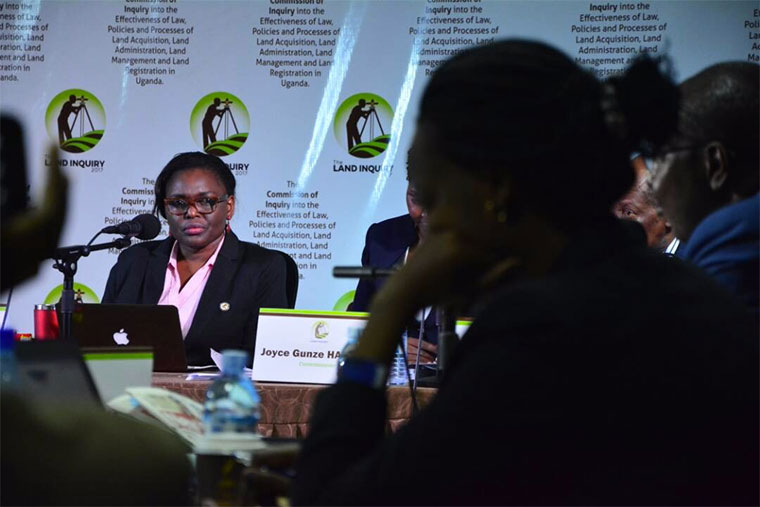Eunice Musiime, Executive Director at Akina Mama wa Afrika.
African Governments must deliberately and sustainably review and streamline their taxation policies to ensure equity and progressive distribution of the tax burden across gender lines.
While Uganda, like other developing countries grapples with the continuing impacts of the pandemic and also tries to rebuild its economy, addressing the existing structural, systemic and intersecting inequalities in the socio-economic and political systems is not being prioritized. For African countries such as Uganda, initiatives to build forward trans formatively requires that key stakeholders re-examine, re-imagine and reform the current economic models to make them more people centered, inclusive, progressive and just.
Akina Mama Wa Afrika, a Pan-African non-governmental organization for African women headquartered in Kampala Uganda, today launched, in Uganda, a substantive framework on feminist taxation calling on all African governments to re-think their taxation policies to be inclusive and fair to women.
The publication, Framing Feminist Taxation: Making Taxes Work for Women, is a pioneer substantive guide that presents feminist intersectional and human rights-based approaches to fiscal policies using examples from Uganda. It reflects on global tax policy issues and processes while linking them to national realities in a way that is useful for influencing both in country and international spaces. The guide provides tools to assess the gender bias in the current tax system and how to advocate for a feminist taxation framework – a tax system that upholds human rights and enables substantive gender justice.
The guide was developed by the Tax and Gender Working Group under the Global Alliance for Tax Justice to aid tax justice advocates, women rights groups, civil society and duty-bearers in redefining the tax and gender trajectory in developing countries.
“Tax systems should be recalibrated to collect more direct tax from wealthy, high net worth individuals and to ensure that big multinational companies pay their fair share of tax. This way we will be shielding women who suffer the heaviest burden of these taxes” says Eunice Musiime, Executive Director at Akina Mama wa Afrika.
Unless there is equity within taxation systems then the process of taxation in a country remains flawed.
“The existing global tax architecture as it is, is flawed because it goes a long way in facilitating tax avoidance, creating a bias in favor of not only high net worth individuals, but more importantly, big multinationals that also pay very low wages, particularly to women” says Eunice Musiime, Executive Director at Akina Mama wa Afrika.
“In many countries, the tax structures result in women paying more taxes than men and yet the women in the labor market generally earn less. Because they earn less, they also rely heavily on public services, which are inadequate in both supply and quality” says Eunice Musiime, Executive Director at Akina Mama wa Afrika.
Fairer tax systems can address gender and socio-economic inequalities.
“Fairer tax system could be the first step in addressing these injustices. Data shows that the biggest chunk of money that the continent hemorrhages is lost through tax evasion and avoidance. A fairer tax system uses tax not just as a vehicle for resource mobilization to fund public goods, but also for redistribution of wealth and opportunities, and addressing social and economic inequalities. This system is aware of differential inequalities, and how neutral policies can become patently unfair in practice,” says Leah Eryenyu, Head of Programmes at Akina Mama wa Afrika.

Given the current status of taxation at all levels – nationally, regionally and globally – AMwA through the publication; Framing Feminist Taxation: Making Taxes Work for Women, makes the following recommendations to African Governments to bring about the desired change with regard to achieving a feminist taxation system;
The tax justice for women’s rights campaign for a feminist taxation framework calls for multilateral institutions and national governments to:
(i) Reduce unfair tax burdens on women and adopt progressive, redistributive and gender equal taxation – including new forms of taxation of capital and wealth – combined with less reliance on consumption taxes.
(ii) Remove gender bias and discrimination in tax policies to ensure that tax revenues are raised and spent in ways that pro – mote gender equality.
(iii) Ensure adequate financing of gender-responsive social services that promote women’s rights such as public childcare services, health, safe and reliable transport, etc; and reduce inequalities, including by gender-responsive budgeting.
iv) Ensure tax and fiscal policies recognize, represent, reduce and redistribute unpaid care work, including by putting in place national policies on care.
(v) Establish an inclusive intergovernmental UN Global Tax body, to ensure equal taxing rights of nation states and stop all forms of tax abuse by multinational corporations and the wealthy elite.
As the Government of Uganda implements the Domestic Resource Mobilization Strategy, we additionally call on the government to; –
a) Do away with harmful tax incentives that privilege the already wealthy and promote illicit financial flows Uganda could recoup about 2 trillion Uganda shillings (about US$ 5.6 m) lost every year, almost equivalent to the annual national health budget.
b) Pursue the renegotiation of existing Double Taxation Agreements (DTAs) such as the Uganda-Netherlands DTA, to advance feminist perspectives in the process.
c) Review and strengthen regulatory frameworks on commercial tax practices that avoid regulation and enable tax dodging and undertake the monitoring of social, economic and development impact of investments benefiting from tax incentives and exemptions.
e) Recognise and raise awareness of tax justice as essential to fulfilling women’s rights and achieving gender justice, and partner with women’s rights organizations to express global solidarity between the tax justice movement and the feminist and women’s movements in the fight for a progressive tax and economic system that works for all women.
f) To mobilize and strengthen the power of tax justice activists through coordinated actions to influence policy-makers at all levels to adopt reforms in tax policies and practices that promote gender equality and women’s rights.





